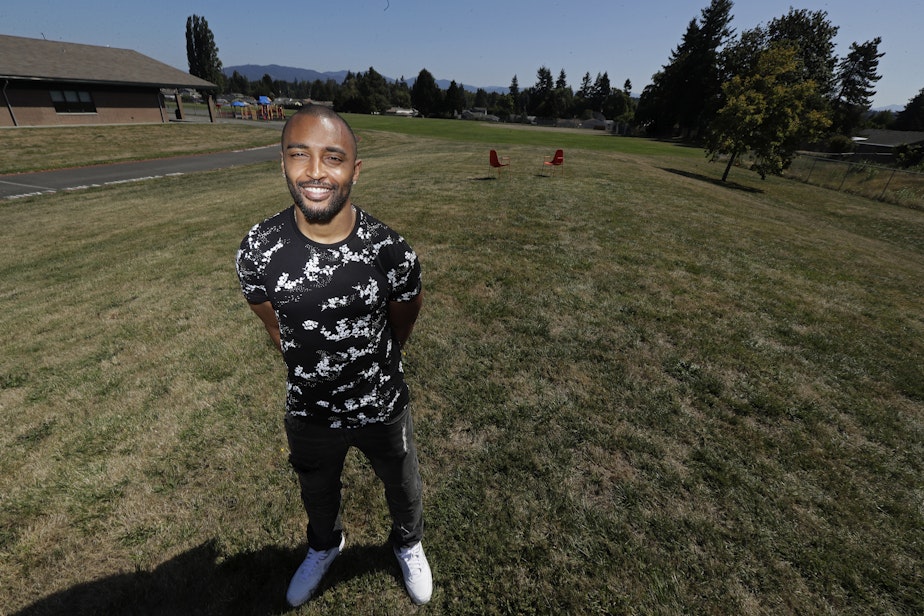Former Seahawk Doug Baldwin on depression, life after football, and his mission to build community

Kim Malcolm talks with former Seattle Seahawks wide receiver Doug Baldwin.
After eight seasons with the Seahawks, Doug Baldwin announced in May that he's retiring from football.
Now, Baldwin is throwing his energy into building the Family First Community Center in Renton, a place inspired by encouragement he got as a young student.
"When people come there they will always be encouraged to look outside of themselves, to really challenge themselves to become the best versions of themselves," he said.
The 30-year-old wide receiver spent his entire career with Seattle, winning a Super Bowl in 2014. But he was plagued by injuries, the affects of which are following him into his retirement.
“I’m still recovering from the surgery, still doing rehab, and still trying to get my body to not feel pain when I wake up in the morning," he said.
Sponsored
He talked in depth about the struggles of moving forward after a lifetime in the sport.
Interview Highlights
Sponsored
On depression after retirement
This sport has been my identity since I was six years old. This is how I got my validation. This is how I got my value. This is how I found my place in the world.
And when that is no longer there and when you are no longer receiving the instant gratification or the instant affirmation, you feel kind of lost. You don’t know who you are. You don’t know what your identity is.
I will be honest, I went through – and I probably am still somewhat – a depression. For a few months I was deep in depression of realizing that my value and my world had changed in a number of ways.
On preparing for major life changes
Sponsored
Number one: You have to have a good therapist.
Two: More so than anything that’s helped me is just being honest with myself.
I take the time to write down, explicitly write down, how I view myself, who I claim to be and also what I want to be – and then try to find a pathway to realizing the flaws that I have as a human being and not putting so much pressure on myself to eliminate those.
In some ways this business I was in for the past eight years created this god complex in me: seeking perfection, always. And when you’re in the real world you realize that’s just not true.
On how fans reacted to quarterback Andrew Luck's recent surprise retirement.
Sponsored
The fans booing as Andrew left the field is indicative of a lack of empathy, a lack of really taking the time to look at individuals as human beings. It was devastating, very disappointing to see the fans react that way. A guy who clearly has been battling to get healthy and to stay healthy and it’s just not in the cards for him.
I think the NFL – and in some regards the sport in general – has been this very large machine that’s operated in the same way for a very long time and is resistant to change.
If the sport itself does not adapt to the culture and behavior of the younger generation, then we’re going to have some major problems.
On his new weekend schedule
I don’t know if I will ever watch a full game. I’ll make sure to check the stats after to see what everybody did. But I think my Sundays will be filled with a lot of other things.
Sponsored
Produced for the web by Kara McDermott.





